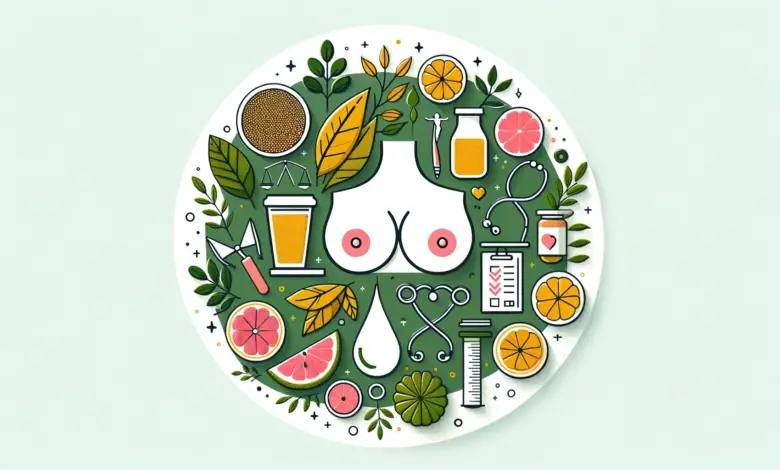Avoid These for Better Breast Health

When it comes to maintaining good breast health, prevention is key. By making certain lifestyle choices and avoiding certain habits, you can significantly reduce the risk of breast-related problems. In this article, we will explore various factors that can negatively impact breast health and provide tips on how to avoid them.
1. Smoking
Smoking is not only harmful to your lungs, but it can also have detrimental effects on your breast health. Research has shown that smoking increases the risk of breast cancer and can lead to the development of benign breast diseases. Quitting smoking is one of the best things you can do to protect your breasts.
Furthermore, exposure to second-hand smoke can also be harmful. If you live with a smoker or frequently find yourself in smoky environments, take steps to minimize your exposure.
Instead of reaching for a cigarette, try adopting healthier habits such as regular exercise, meditation, or engaging in hobbies that help you relax and reduce stress.
Remember, quitting smoking is not easy, but there are various resources available to help you on your journey. Reach out to your healthcare provider or support groups for assistance.
2. Excessive Alcohol Consumption
While the occasional glass of wine may not pose a significant risk, excessive alcohol consumption can have a negative impact on breast health. Studies have shown that women who drink heavily are at a higher risk of developing breast cancer.
If you choose to drink alcohol, it is important to do so in moderation. The American Cancer Society recommends limiting alcohol intake to no more than one drink per day for women.
Additionally, it is important to be aware of the potential interactions between alcohol and certain medications. Consult with your healthcare provider to understand any potential risks.
Remember, moderation is key. If you find it difficult to control your alcohol consumption, consider seeking support from a healthcare professional or support group.
3. Sedentary Lifestyle
A sedentary lifestyle can contribute to a variety of health problems, including breast-related issues. Regular physical activity can help maintain a healthy weight, reduce inflammation, and improve overall breast health.
Engage in at least 150 minutes of moderate-intensity aerobic activity or 75 minutes of vigorous-intensity aerobic activity every week. This can include activities such as brisk walking, jogging, swimming, or cycling.
Additionally, incorporating strength training exercises into your routine can help improve muscle tone and overall fitness.
Remember, it’s important to find activities that you enjoy and make them a regular part of your routine. Consider enlisting the support of a workout buddy to help keep you motivated.
4. Unhealthy Diet
A poor diet lacking in essential nutrients can negatively impact breast health. Consuming a balanced diet rich in fruits, vegetables, whole grains, and lean proteins can help reduce the risk of breast-related problems.
Avoid processed foods, sugary snacks, and excessive intake of saturated and trans fats. Instead, opt for nutrient-dense foods that provide vitamins, minerals, and antioxidants.
Include foods that are rich in omega-3 fatty acids, such as fatty fish, walnuts, and flaxseeds, as they have been shown to have protective effects on breast health.
Remember, maintaining a healthy diet is a lifelong commitment. Small changes in your eating habits can make a significant difference in your overall well-being.
5. Hormone Replacement Therapy
Hormone replacement therapy (HRT) is sometimes prescribed to alleviate symptoms of menopause. However, long-term use of HRT can increase the risk of breast cancer.
If you are considering HRT, it is important to have a thorough discussion with your healthcare provider about the potential risks and benefits. They can help you determine if HRT is the right choice for you based on your individual circumstances.
There may be alternative treatments or lifestyle modifications that can help manage menopausal symptoms without the use of hormones.
Remember, it’s essential to be proactive and informed when making decisions about your health. Seek the guidance of a healthcare professional to make the best choices for your well-being.
Conclusion
By avoiding these habits and making positive lifestyle choices, you can significantly improve your breast health. Remember to quit smoking, moderate your alcohol consumption, stay physically active, maintain a healthy diet, and make informed decisions about hormone replacement therapy.
Remember, prevention is key. Take care of your breasts and prioritize your overall health and well-being.



